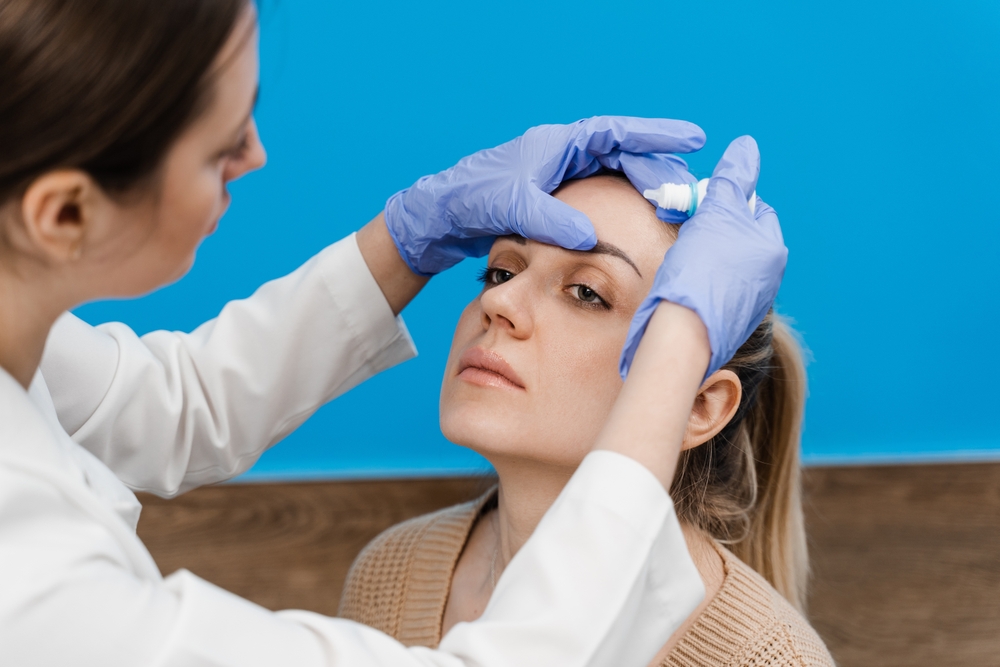
Dry eye syndrome is a common eye condition that occurs when your eyes do not produce enough tears or when the tears evaporate too quickly. This can lead to eye irritation, discomfort, and even vision problems. Dry eye syndrome is a chronic and progressive condition that can significantly impact your quality of life if left untreated.
Common Causes of Dry Eye Syndrome
There are several factors that can contribute to the development of dry eye syndrome, including:
Age: As you get older, your tear production naturally decreases, making you more susceptible to dry eyes.
Gender: Women, especially those going through hormonal changes such as menopause, are more likely to develop dry eye syndrome.
Environmental factors: Exposure to dry, windy, or air-conditioned environments, as well as prolonged use of digital devices, can all exacerbate dry eye symptoms.
Certain medical conditions: Conditions like Sjögren's syndrome, rheumatoid arthritis, and thyroid disorders can increase the risk of developing dry eyes.
Medications: Some medications, such as antihistamines, antidepressants, and blood pressure medications, can contribute to dry eye syndrome as a side effect.
Eyelid Problems: Issues with the eyelids, such as blepharitis (inflammation of the eyelids) or meibomian gland dysfunction, can disrupt the production or quality of tears.
Recognizing the Symptoms of Dry Eye Syndrome
The most common symptoms of dry eye syndrome include:
Burning, stinging, or itching sensation in the eyes
Redness or irritation
Feeling of something in the eye (foreign body sensation)
Sensitivity to light or wind
Blurred vision or eye fatigue
Excessive tearing or water eyes
Lifestyle Changes to Alleviate Dry Eye Syndrome
While dry eye syndrome can be a chronic condition, there are several lifestyle changes you can make to help alleviate your symptoms:
Limit screen time: Take regular breaks from digital devices, such as computers, smartphones, and tablets, to reduce eye strain and tear evaporation.
Blink more often: Make a conscious effort to blink more frequently, as this helps spread tears across the surface of your eyes.
Use a humidifier: Increase the humidity in your living and work environments to prevent tear evaporation.
Avoid smoke and dry environments: Steer clear of cigarette smoke, campfires, and other dry, windy conditions that can exacerbate dry eye symptoms.
Adjust your diet: Incorporate foods rich in omega-3 fatty acids, such as fatty fish, nuts, and seeds, as they can help reduce inflammation and improve tear quality.
Stay hydrated: Drink plenty of water throughout the day to maintain proper hydration levels.
The Importance of Diagnosis for a Personalized Treatment Plan
Dry eye syndrome can have multiple underlying causes, and the severity of the condition can vary greatly from person to person. That's why it's crucial to seek a proper diagnosis from an optometrist.
During your examination, your eye doctor will assess the health of your eyes, evaluate your tear production and quality, and identify any underlying conditions that may be contributing to your dry eye symptoms. This comprehensive evaluation will enable your doctor to develop a personalized treatment plan tailored to your specific needs.
Treatment Options for Dry Eye Syndrome
Depending on the underlying cause and severity of your dry eye syndrome, your eye care professional may recommend one or more of the following treatment options:
Artificial Tears and Lubricating Drops: Over-the-counter eye drops can provide temporary relief by supplementing your natural tear production.
Prescription Eye Drops: Your doctor may prescribe medicated eye drops or ointments to reduce inflammation, increase tear production, or address the underlying cause of your dry eyes.
Warm Compresses and Lid Hygiene: Applying warm compresses to your eyes and gently cleaning your eyelids can help unclog blocked meibomian glands and improve tear quality.
Nutritional Supplements: Omega-3 fatty acid supplements may help reduce inflammation and improve tear production.
Punctal Plugs: These small devices are inserted into the tear ducts to prevent drainage and maintain moisture in the eyes.
In-Office Treatments: Procedures such as intense pulsed light (IPL) therapy or meibomian gland expression can help address the underlying causes of dry eye syndrome.
The most effective treatment plan may involve a combination of these options, as well as ongoing management and monitoring by your eye doctor.
Schedule Your Dry Eye Evaluation with Eye Check Health and Vision Today
Dry eye syndrome is a common and often chronic condition that can significantly impact your quality of life. By understanding the causes, recognizing the symptoms, and implementing the appropriate lifestyle changes and treatment options, you can take steps to alleviate your dry eye symptoms and maintain healthy, comfortable eyes.
If you're experiencing persistent dry eye symptoms, schedule a dry eye evaluation with Eye Check Health and Vision, Dr. Reppert can provide a comprehensive evaluation and develop a personalized treatment plan to help you find relief and improve your overall eye health. Visit our office in East Petersburg, Pennsylvania, or call (717) 500-2962 to schedule your appointment today.





